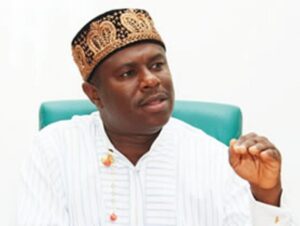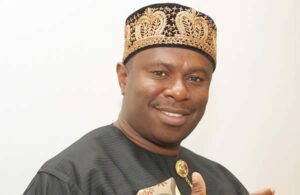
Buhari’s footprints from home to diaspora
By FEMI ADESINA
Unless you are the discerning type, listening to public discourse today, you would think the only thing happening in the country is insecurity.
Yes, Nigeria has battled, and is still battling grave security issues. But it will win. As sure as night follows the day. In fact, insurgents and bandits are being put on the back foot already. Nigeria shall win.
However, the footprints of President Muhammadu Buhari are visible in many areas of our national life, and will remain indelible. At least for those who are fair, and open-minded, not those who have afflicted themselves with willful blindness, deafness and amnesia.
One area where President Buhari will never be forgotten is in diaspora matters. How the country relates with its nationals abroad, taps into their skills and capacities, takes care of their needs, and generally gives them a sense of inclusion in national affairs.
In 2017, Buhari saw to the enactment of the Nigeria in Diaspora Commission (Establishment) Act, which provides for the engagement of Nigerians in diaspora in the policies, projects and participation in the development of Nigeria, and for the purpose of utilizing the human capital and material resources of Nigerians in diaspora towards the overall socio-economic, cultural and political development of the country.
The Nigeria in Diaspora Commission (NIDCOM) was set up, with our media kinswoman and former Federal lawmaker, Abike Dabiri, as the pioneer Chairman/Chief Executive Officer.
But the office was not just set up to become a monument or white elephant, President Buhari gives all the support necessary. I was privy to it when he gave an instruction that the NIDCOM CEO must be on all his foreign trips, where he wishes to meet, and engage with Nigerians living abroad. And Nigeria has a treasure trove today in its diaspora nationals, spread round the world.
Every week, we hold the State House Press Briefing organized by the Presidential Communications Team. And who was our guest last week? Hon. Abike Dabiri, who had a lot to unfold, justifying why Buhari is known today as the ‘Most Loving Diaspora President’ we’ve had.
Nigeria boasts of great human resources, both at home and in diaspora. But it is one thing to have the rich resources, it’s another thing to harness them. That is what NIDCOM, with the active support of the President, is doing.
Who is a diaspora? A Nigerian who lives and works abroad, and who maintains links with the country and shows clear interest in contributing to her development in diverse ways. We are not talking of Nigerians who have ‘japa’ (to use a popular local lingo), and who have resolved to have nothing to do with motherland again. Some even stay abroad, and start throwing stones at their country, calling it all sorts of names.
In terms of financial remittances, see what our diaspora have done in the past three years. Mind you, we are talking of funds remitted through official channels, which can be tracked and recorded, and not unofficial ones.
In year 2019, total remittance was 25 billion dollars. In 2020, due to the ravages of COVID-19, it dropped to 17 billion dollars. And in 2021, it shot up to 20 billion dollars again. In Quarter 1 of this year alone, the sum of 5.16 billion dollars had been recorded.
The significance of these diaspora remittances should strike home better, when you compare it to what the country gets through Foreign Direct Investment. In 2021, it was 4.8 billion dollars, compared to 20 billion. Diaspora Home Remittances, are, therefore four times our FDI, and contribute about 6.1% of our annual GDP.
A lot of people, particularly youths, want out of the country, because of hard times, which is really a global phenomenon. But as some people, young and old ‘japa,’ others are coming back home, and making a difference. Why? Because they still believe in Nigeria. East or West, home is the best.
Hon. Dabiri furnished the public with details of some diaspora Nigerians, who have returned to do great things in motherland. Dr John Godson Abraham has come back to set up Pilgrim Ranch Farm in Abuja. And it’s thriving. Dr Saidu Alhassan Wurno has established the Sokoto Multi-School Bus Project in Sokoto. Dr Modupe Elebute-Odunsi has set up Marcelle Ruth Hospital in Lagos, an ultra-modern facility. The hospital where VP Yemi Osinbajo also recently had surgery is a product of diaspora investment.
How about Dr Badewa Adejugbe-Williams? That’s the brain behind Royal School of Educational Therapy Foundation in Abuja. Simon Moses has Industrial Borehole/Road Construction company in Agatu, Benue State, Asisat Oshoala has a Football Academy in Lagos, while Anthony Joshua and Ahmed Musa have sports academies in Ogun, Plateau and Kano States, respectively.
In the midst of all these, there are mischievous people; politicians, so-called activists, talk show hosts on TV and radio, cynical people, who keep talking of farmers/herdsmen clashes, banditry, ‘worsening’ insecurity, and negative things daily. Well, let them be marooned there, and other positive minded people will continue to make progress.
Dr Philip O. Ozuah, an alumnus of the University of Ibadan recently donated a handsome 1 million dollars to his old university from the diaspora. Dr Benjamin Anyanwu has established a Stroke and Neuroscience Hospital in Owerri, Imo State, while people in diaspora contributed millions of dollars to help their country fight COVID-19. So, Nigeria is not a zoo after all.
Every July 25 is now Diaspora Day in Nigeria. The National Diaspora Policy was ratified by the Federal Executive Council last year. There has been an annual Nigeria Diaspora Investment Summit since 2018, and the setting up of a Diaspora Data Mapping Portal since 2021, to register Nigerians in Diaspora. There is the Diaspora Quarterly Lecture Series, the Diaspora Online Radio, newsletter, and weekly TV. All supported by Buhari. And some people think only insecurity will be said of his tenure in office? Fie. And I say fie, again.
Everywhere we go in the world, and the President meets with Nigerians living abroad, he has the same message for them. Obey the laws of your host countries. Follow the rules and regulations. Don’t forget home. Work hard, strive to be the best. If there are issues, trust us to stand up for you, but it should not be criminal.
Remember Zainab Aliyu and Ibrahim Ibrahim, who were unjustly tapped for drugs in Saudi Arabia? Nigeria rose up for them. The Legal Unit of NIDCOM has received and treated not less than 700 petitions from different parts of the world. 150 people have also been assisted to register companies with the Corporate Affairs Commission.
To show the national acceptability that President Buhari has given to diaspora matters, Abia and Edo States have also set up Diaspora Commissions, and signed bills into law. We are sure making progress.
From Washington to Russia, France, South Africa, Rwanda, Portugal, India, and many other countries, President Buhari has held Town Hall meetings with Nigerians resident abroad. When there were flare-ups in South Africa, Libya, Lebanon, Ukraine, and other places, he promptly brought willing Nigerians back home, not minding cost
Truly, we have with us the Most Diaspora Friendly President, and this, among others, will stand him in good stead, when he breasts the tape in May, next year. But insecurity? Let the naysayers wait and see. Even that, will become history.
Adesina is Special Adviser to President Buhari on Media and Publicity


